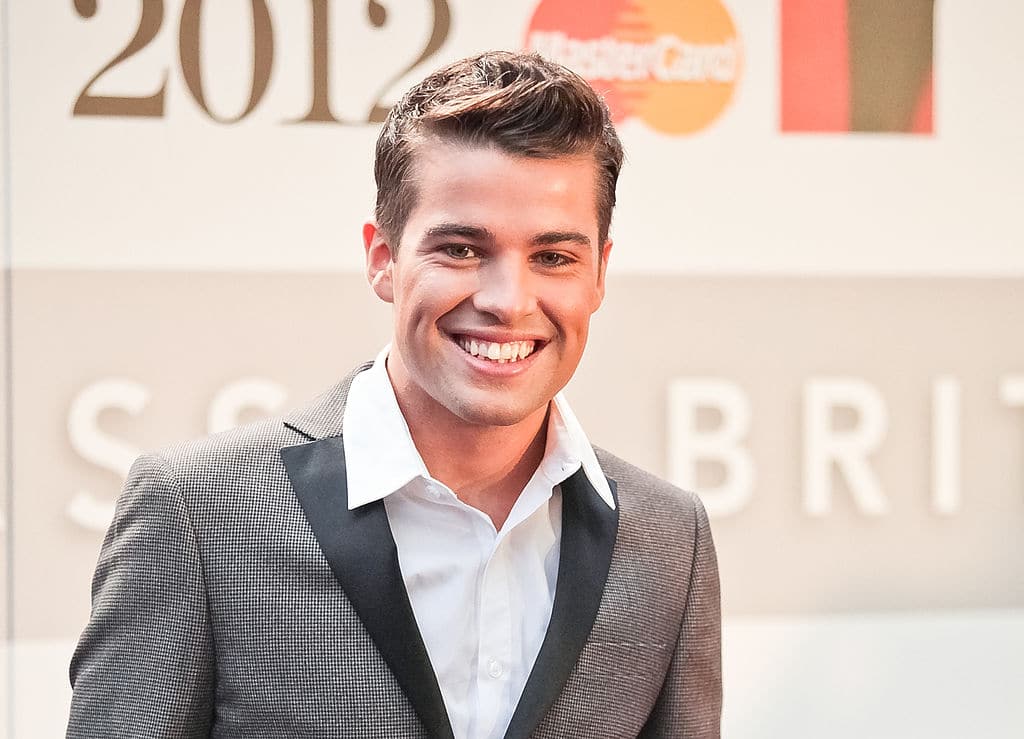Joe McElderry attends the Classic Brit Awards 2012 at Royal Albert Hall on October 2, 2012. (Christie Goodwin/Redferns via Getty)
Joe McElderry won The X Factor when he was just 18-years-old with his version of “The Climb” by Miley Cyrus.
The year was 2009 and McElderry was at the height of his powers. The tabloids were obsessed with him and he had a lucrative record deal with Simon Cowell’s label Syco.
By 2011, he had parted ways with Syco and he was embarking on a whole new career of his own making. In the years since, Joe McElderry has carved out a space for himself in musical theatre. He’s now preparing to perform the songs of George Michael with the live show Freedom, which tours the UK in October.
PinkNews caught up with the X Factor winner to talk about his enduring adoration for George Michael’s music, the pitfalls of achieving stardom at 18 and why he had to “walk away” early in his career.
PinkNews: What can fans expect from your new George Michael show?
This is a celebration of George Michael’s music. I was approached early in lockdown last year by the wonderful team that are putting the show together and they said, “Would you be interested in heading out on the road to celebrate the music of George Michael?” Obviously I’m a huge fan of him and I have been since day one. I was lucky enough to get to sing with him on X Factor. It’s a a celebration of the incredible work he did. It’s going to be a really fun show of covers, all of the songs that have spanned his incredible career. I can’t wait. To be able to perform those songs every night, it’s just going to be so special. I’m a little nervous because with that comes pressure – you want to do it justice, I don’t want to ruin the songs. You want to make them as brilliant as they were.
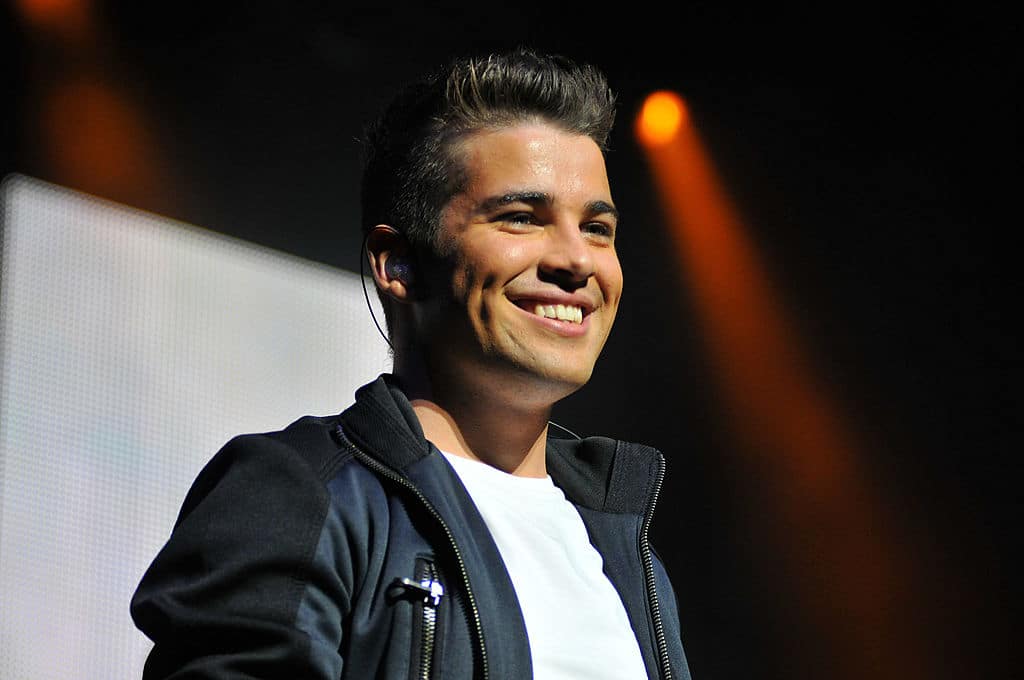
What was your entry route into George Michael’s music – when did you first become a fan?
My mam is a number one fan and has been since day one, so I grew up around his music from as young as I can remember – it was always playing in the house, so I was very well aware of the impact he had on the music industry and what he had done and what he had achieved. By the time I got to The X Factor as an 18-year-old, when they said he was coming on the show, I knew how much of a legend he was. When they said that he’d agreed to sing with us, I phoned my mam and we couldn’t believe it. Somebody of that level of success, they almost feel not real, so when we knew he was coming on the show it was a huge thing and I think it was a massive thing for The X Factor as well. So I was blown away that I got to do that.
What was it like singing with George Michael? It must have been so surreal.
He was one of the nicest people I’ve ever met. People say you shouldn’t meet your idols because you’ll end up disappointed, but I have to say with him he was one of the most generous people that I’ve met. He made that whole moment on the show about me. It was all about giving me the high notes and showcasing me in the best light. He was like, “I’m here to sing with you, I’m here to support you, this is your moment, it’s about you.”
He spent time with us backstage and gave us advice. In those moments as a performer, when you go on TV shows and you’re in a promotional setting and you’re rushing in without much rehearsal, it’s very easy to get lost in that moment, but he made the moment very personal and an experience to enjoy and not just “I’m coming on a show to sing with somebody and that’s it”. He was really generous with his time.
Do you remember any of the words of wisdom or advice he was able to offer?
One of the main things he said was: “Just focus on being the best you can be at your job. Everything else is noise.” He was one of those people who had experienced a huge level of fame, and the advantages and disadvantages that come with that, so he was like, “Listen, all of that, ignore it all, just concentrate on being the best you can be as a performer and an artist and a musician. Everything else is background noise.” I think that’s pretty solid advice.
He’s left behind such an incredible legacy. What does he mean to musicians like yourself today?
When you think about what he experienced via the media and also publicly coming out all those years ago – I think that is a huge legacy that he made it so much easier for people in this generation. Music wise, he was so ahead of his time. If you look at his music now, you can play it on the radio against songs that are out now and it’s still so relevant.
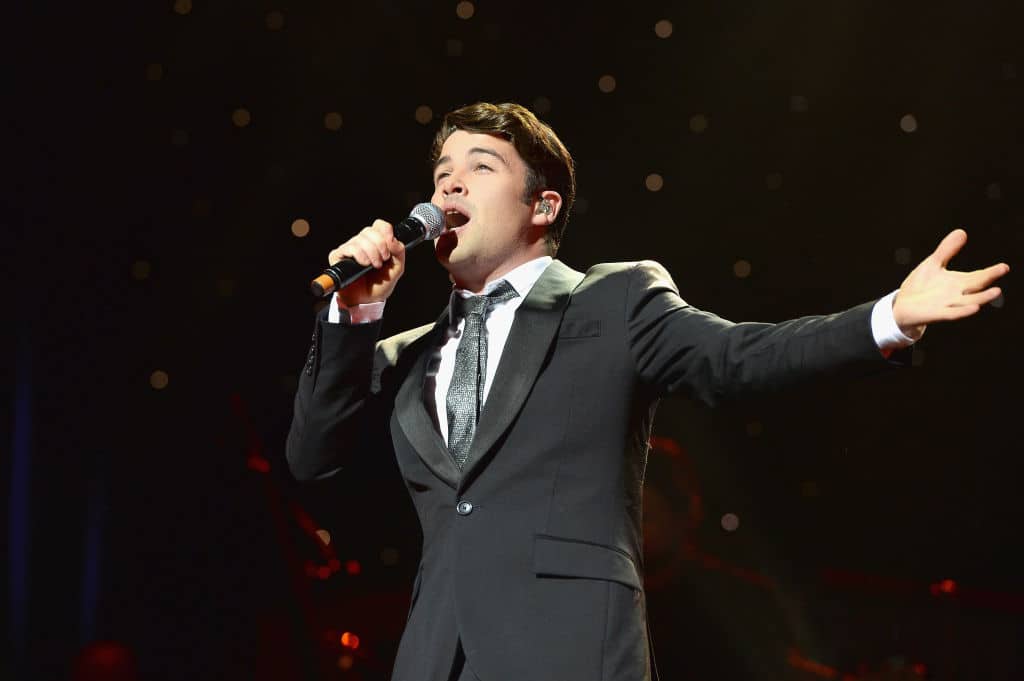
George Michael obviously changed the game for LGBTQ+ artists. How much has changed in the industry since you started out?
If we compare how things are to how they were 10 years ago when I came out, I did two sit down interviews with national newspapers – I would hope we’re slowly moving away from that being a necessary thing. I remember at the time when I sat down to do the interviews, the support from the media and the public was incredible, but having to sit down as an 18 year old and do interviews about your sexuality and your private life is not something we should have to do now.
I think we’re on the way but there’s still a lot more work to be done. It has changed a lot over the last 10 years. We’re having a lot more conversations, we’re having more people speaking out about it and calling out wrongful behaviour. I’m proud of the progress we’ve made so far, but there’s more work to do.
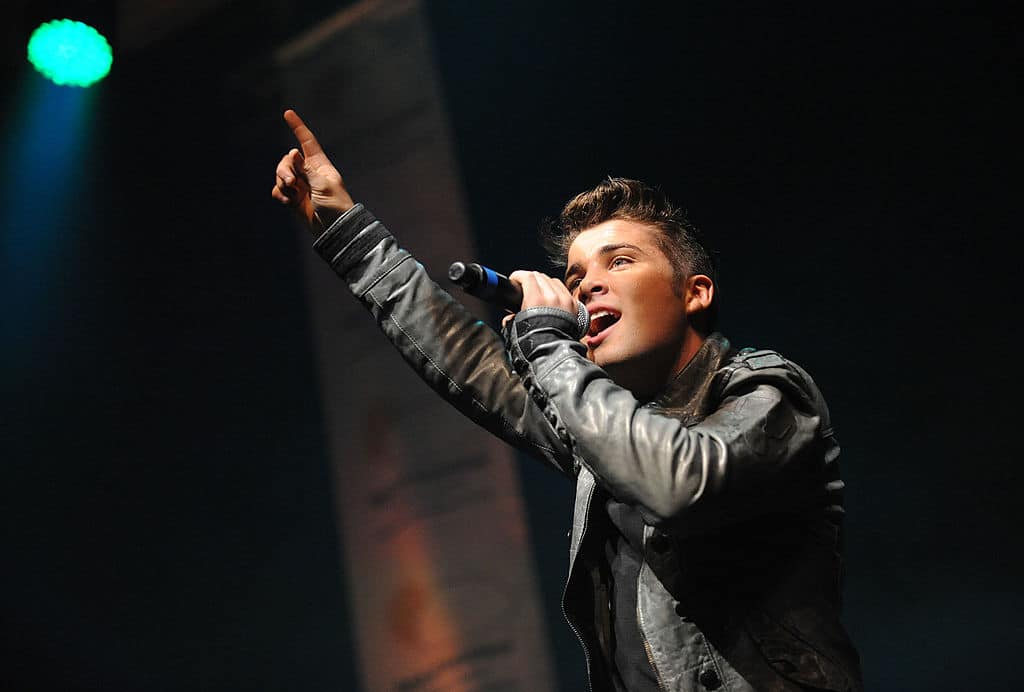
Amazingly it’s been 13 years since you won The X Factor – what are your feelings about that whole period looking back now? You were so young.
I think it’s a blessing and a curse at the same time. I think obviously to go through it that young, the advantage is that you’re very naive. For me, I could kind of coast through it all and be like, “This is really exciting, this is brilliant,” but then I think navigating a music industry that’s very hard and tough and cutthroat as a teenager into adulthood was difficult. As an 18 year old you don’t expect to be sat in a boardroom with a load of music executives talking about numbers and finances and all of those things. I had to grow up very quickly, but I think now as a 30 year old, I’ve learnt the way the music industry goes, and I’ve learnt that knowledge is power.
I very much challenged that at the time and walked away from quite a few situations that I felt were unfair or were not being dealt with in the right way.
I have to say, through all of that I’ve been very blessed with a wonderful career that I’ve loved. I do feel very lucky that 13 years later I still get to do it because I know that show business and the music industry is a hard place to stick around in. I’m proud that I’m still able to do something that I love every day.
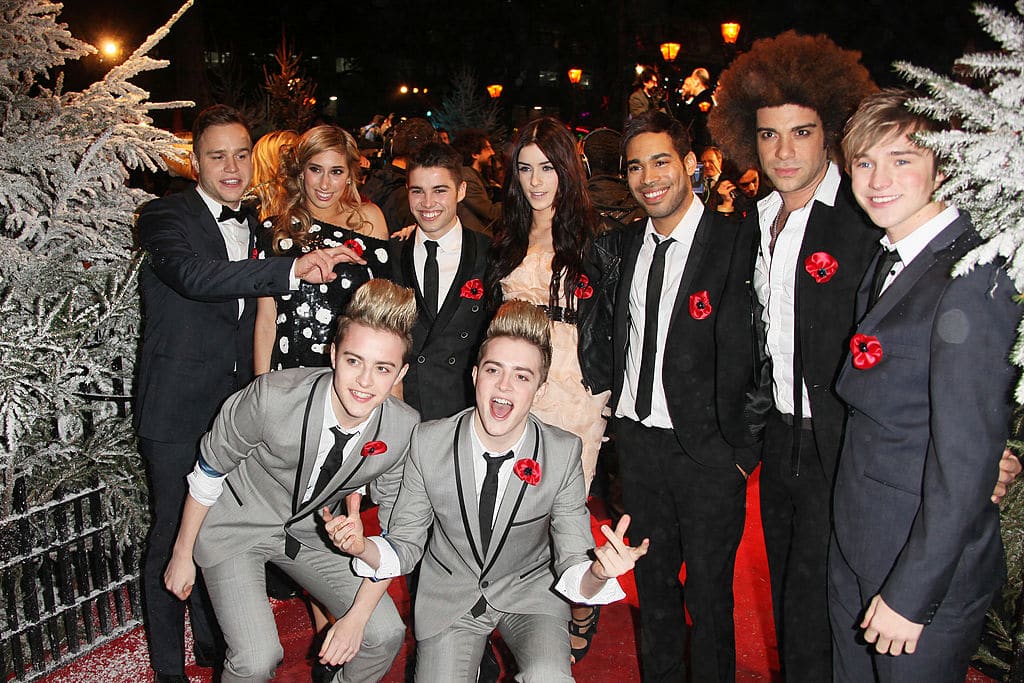
The X Factor has faced some criticism in recent years from the likes of Rebecca Ferguson and Cher Lloyd – how did your experience compare to theirs?
We’ve obviously seen people speaking about these experiences, and I’ve had my fair share of experiences of dealing with stuff behind the scenes and I very much challenged that at the time and walked away from quite a few situations that I felt were unfair or were not being dealt with in the right way… it’s like what I was saying before, there’s a whole other business that goes on behind the scenes that the public don’t get to see. It’s great that artists are speaking out about situations [they’ve been in] because I think it can make a change.
Are there any particular changes you’d like to see happen? Some people have floated the idea of legislative change to regulate the music industry.
You know what, I don’t think that would be a bad thing. I think anything that offers some form of protection, because at the minute there’s not really any protection at all if we’re honest. We’re seeing with TV shows, some of the TV companies are looking out for the welfare of contestants a lot more. You should never be in a position where you go on a TV show and every single person that’s presented to you to work with already works for that TV company. That’s not fair. It should be separate entities working for each individual person and then each corner’s fought for in the correct way, in my opinion.
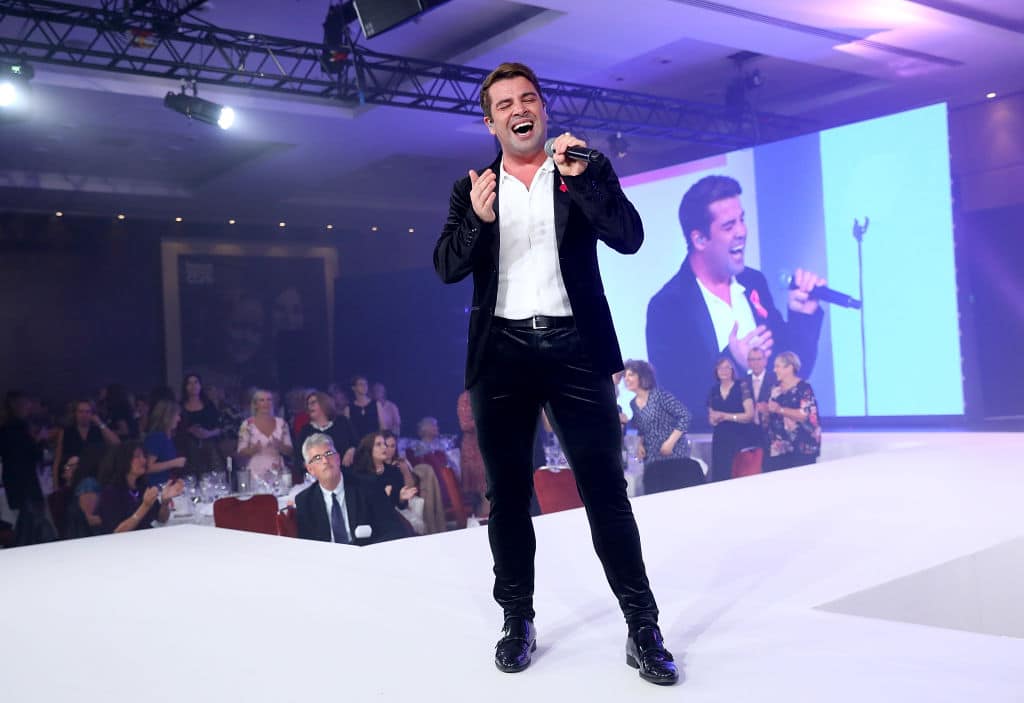
You said there were a couple of things that you felt the need to walk away from – was there anything in particular you were referencing?
I don’t think it’s a secret – I left my first management company pretty swiftly in the early stages. It’s not about me trying to slag anyone off or anything, I just knew that environment wasn’t right for me and where I wanted my career to go. We weren’t on the same page and I walked away quite quickly… It was a decision that really worked for me. I think I’ve always learned in this industry, you get a gut instinct and you should always follow that instinct because it’s never normally wrong. It’s hard at the time, especially when there’s a lot of success going on around you and when there’s a lot of people around you and pressure to deliver, but your gut instinct normally serves you right. My gut instinct told me back then, I need to get away from this and move on and for me it was the right decision.
You’ve achieved so much since winning The X Factor all those years ago. Is there anything else on the bucket list?
Obviously a lot more music. I’m working on a new album and I was working and writing all the way through lockdown – we released two singles last year. I’d love to do some more acting – I’d love to maybe do some film work and TV. I turned 30 in lockdown last year and I’ve had a lot of wonderful success in the first 12, 13 years of my career, but I think for me now going forward it’s just about, if a project comes in and it’s something fun and exciting and pushes me a bit out of the comfort zone then I’m down for it.
Tickets for Joe McElderry’s George Michael tribute show Freedom are on sale now.
